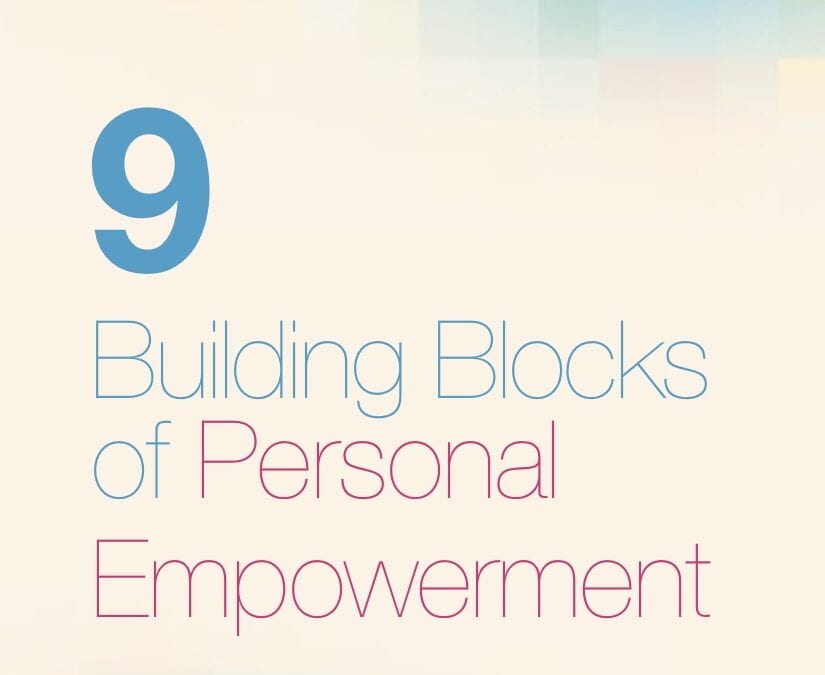
Leadership: Become the Leader You’ve Always Wanted to Be
Do you consider yourself a great leader? Leadership skills are highly sought after by employers. Leadership is challenging. It’s part science and part art.
The science can be learned conventionally. The art is learned by experience. The ability to combine both separates the great leaders from the rest.
The business environment is rapidly changing. This is creating a great demand for those with leadership skills, particularly as it relates to leading others through change. In the past, managers were tasked with maintaining the status quo.
This is no longer true. If you can lead others through change, you possess one of the most valuable workplace skills.
Leaders have the ability to change companies and the world. Leadership skills are highly learnable and always valuable. Advancing your skills may be the best way to advance your career.
If you’ve always wanted to become an effective leader, you’re in luck. There has never been a better time to enhance your ability to lead others. There are more opportunities to learn these skills than ever before.
There’s also never been a greater need for these skills.
“If your actions inspire others to dream more, learn more, do more and become more, you are a leader.”
– John Quincy Adams

Are Great Leaders Born or Made?
The debate over whether leadership skills are innate or learned has likely been debated since the days of the cave man. Is it possible that some people are born with the gift of effective leadership skills while the rest of us are relegated to be full-time followers? Or is it possible that anyone can be a great leader?
While it’s debatable whether everyone has the ability to become the next Winston Churchill or Mahatma Gandhi, there’s little doubt that we are all capable of becoming effective leaders.
Even a moderate increase in your leadership skills can have a positive impact on your personal and professional life.
Many experts hold fast to the belief that leaders are created. It’s simply a matter of learning the necessary skills and gaining the necessary experience. Fortunately, there’s never been a better time to enhance your leadership skills.
There’s a plethora of information available, and it’s often free. In addition, researchers are hard at work to gain a better understanding of what makes great leaders tick. Business and psychology programs are constantly researching leadership topics.
Many of the famous leaders throughout history learned their leadership skills on the fly. They were passionate about a worthy cause and developed the ability to lead and inspire others along the way. They weren’t all born to be historical figures.
Most importantly, you can greatly strengthen your leadership skills, regardless of your current level of expertise. Being shy or introverted won’t prevent you from becoming an effective leader. In fact, many of history’s greatest leaders were introverts! We’ll even list a few later.
“It is better to lead from behind and to put others in front, especially when you celebrate victory when nice things occur. You take the front line when there is danger. Then people will appreciate your leadership.” Nelson Mandela

The Advantages of Being a Skillful Leader
Your leadership abilities don’t just benefit your employer. Your ability to lead others can enhance your life in many ways. Even if you don’t currently hold a leadership position at work, there are many reasons to begin strengthening your leadership skills today.
Consider these advantages of being a skilled leader:
1. You’re more valuable to your employer. Employees can be trained to perform most work tasks quickly and easily. It’s much rarer to find someone with the skills to lead a large group of people to complete a complex task.
> If you’re an effective leader, you can do things for your employer that few other employees can do.
> The further up the chain you travel, the more important leadership skills become. Increasing your leadership skills can pave the way to both a promotion and a salary increase.
2. You’re more attractive to other employers. The best job opportunities often lie with other companies. Demonstrate that you have leadership skills, and other companies will take notice. Ensure that your resume lists your leadership accomplishments. Employers are always looking for new talent.
3. Leadership skills can positively affect your personal life. Leaders often have different lives outside of work than non-leaders. As a leader, you know how to influence others. People are more likely to treat you with respect.
4. Being a good leader can enhance your confidence. When you’re successful at leading others, you develop social confidence. A higher level of confidence can pay off in every facet of life. This confidence is helpful when dealing with friends, family, and strangers. Confidence attracts others.
Becoming a better leader will create more employment opportunities and increase your value to your employer. Leaders are always in short supply, and therefore, are always in demand. Growing your leadership skills may be the most effective way to improve your employment prospects and your bank account.
The benefits of leadership extend beyond the workplace. Your personal relationships are affected in positive ways, and the confidence you gain permeates your entire life. Improving your ability to lead will enhance your entire life.
“A good leader takes a little more than his share of the blame, a little less than his share of the credit.” -Arnold H. Glasow

Qualities Shared by Great Leaders
Success leaves clues. All great leaders are individuals with unique skills and personalities. However, great leaders have several characteristics in common. If you’re attempting to become a more effective leader, it makes sense to develop these qualities.
Great leaders share a foundation of particular traits:
1. Leaders have effective communication skills. It’s important to be able to effectively communicate your objective and other valuable information to your team. Communication is perhaps the most valuable skill for leaders.
> Expectations can’t be met if they’re not communicated clearly.
> Effective training requires communication.
> Constructive feedback is another valuable facet of any team endeavor. Can you provide constructive criticism in a way that enhances future results?
> Effective communication ensures that everyone is on the same page and working synergistically toward the same outcome.
2. Leaders have the ability to delegate effectively. If you could do everything yourself, it wouldn’t be necessary to lead anyone. However, big outcomes require many hands on deck. You can’t do it alone.
> Delegating appropriately also requires confidence that others can do their part. There isn’t enough time in the day to micromanage everyone. Too much meddling leads to poor performance and resentment, too.
> Understanding the capabilities of everyone on your team helps you to assign tasks to each member that are appropriate to their skills.

3. Leaders are adept at choosing team members. Sometimes you’re assigned a team. However, there are times you’re able to choose your team members. Leaders are able to determine which skills are required to complete a project successfully.
> It’s just as important to choose team members that will work well together. An effective leader is focused on getting work done, rather than playing referee.
> A skilled leader will also choose team members will skills that supplement his own. Being a leader doesn’t require the ability complete every possible task. Steve Jobs of Apple wasn’t capable of performing all the necessary engineering activities. However, he did a wonderful job of finding people with those skills.
4. Leaders are honest. All relationships require a foundation of trust to ensure success. Leaders are clear on their values and are willing to share them freely. A leader that fails to instill trust in her followers is ineffective.
> Many famous leaders are infamous for their brutal honesty.
5. Leaders have conviction. Big projects inevitably have many bumps, twists, and turns along the road to completion. Only the committed are able to find the finish line consistently.
> Leaders are committed in every way. They’re committed to getting the job done, whatever it takes. Leaders don’t expect to receive more commitment than they’re willing to give.
6. Leaders are confident. If a leader is unable to show he’s confident regarding the mission at hand, his followers will lack confidence, too. It’s vital to set a good example and remain confident that everything will work out.
7. Leaders are flexible. It’s not possible to predict every hiccup that will occur over the course of a project. Leaders are able to find creative solutions.
> Resources are often limited. An effective leader can creatively utilize all the resources available to him.
> The ability to think outside the box is valuable.
8. Leaders are intuitive. Successful leaders also possess intuition. Every situation is different, and past solutions don’t always apply. A great leader can rely on experience and intuition to find the best solution.
How many of these traits do possess? Where could you seek improvement? Are there any additional qualities you believe a great leader must possess?
Not all great leaders are created equal, but all great leaders share common characteristics. Develop the qualities that take your skills to a higher level.
“A leader is best when people barely know he exists, when his work is done, his aim fulfilled, they will say: we did it ourselves.” – Lao Tzu

What Leaders Provide to Others
Being a skilled leader doesn’t just benefit you and your employer. Leaders provide many benefits to their team members. Leadership can be a burden, but when you realize how much it contributes to others, you’ll be even more motivated to lead.
You’ll also be even more aware of how valuable you are to your company.
Leaders benefit their teams in a variety of ways:
1. Leaders take the blame. When things go wrong, leaders take the blame for the team. Leaders might get most of the credit when things go well, but they also receive the brunt of the blame the rest of the time.
2. Leaders inspire. An effective leader can inspire others to believe they’re capable of great things. Leaders also inspire others to believe in the project and to expect a positive outcome. Inspired employees are happier and more productive.
3. Leaders create a vision and clarity. When we don’t know what is going on, a leader can create a vision and provide direction. A team is lost without a leader.
4. Leaders are supportive. A good leader provides the support, encouragement, and resources needed to be at our best.
5. Leaders instill confidence. Leaders are good at stretching team members to be bigger and better than they’ve demonstrated in the past. Making someone feel confident in their abilities is a gift that an effective leader provides.
6. Leaders make the big decisions. Not everyone on a team is capable of making big decisions. Leaders remove the burden of making the hard choices.
Understand how much your leadership skills provide to your employer and your team. Effective leaders are highly prized within any organization. When your leadership responsibilities feel burdensome, remember just how important you are.
“Outstanding leaders go out of their way to boost the self-esteem of their personnel. If people believe in themselves, it’s amazing what they can accomplish.” – Sam Walton

Why Introverts can be Effective Leaders
Studies have demonstrated that roughly 40% of highly rated leaders are introverts. Bill Gates, Steven Spielberg, and Abraham Lincoln are just a few notable examples. Being an extrovert isn’t a requirement to be a world-class leader! If you’re an introvert, now is the time to embrace it fully.
Introverts can be highly effective leaders:
1. Introverts are better listeners. Introverted leaders are considered better listeners and are able to absorb the suggestions of their team.
> Studies suggest that the most important skill for extroverted leaders to improve is the ability to listen. So introverts already have a big head start!
2. Introverted leaders tend to be less ego-driven. While there are certainly egotistical introverts, extroverts have a tendency to be more influenced by their egos. Introverts are more willing to give credit to others and commit to success for more altruistic reasons.
> Introverted leaders are more likely to feel a sense of service. Extroverted leaders are often motivated by reasons that are more selfish.
3. Introverts are more likely to be a calming influence during turbulent times. The more subdued and relaxed nature of introverts can be a calming presence.
> This calming effect extends beyond the team members to customers and upper management. Everyone wins.
> Calm and composed leaders are in a better position to make good decisions.
4. Introverts prepare extensively. Introverts are more likely to think through the possibilities and be proactive. This is thought to be due to an aversion to drama and the unknown. Introverts like their environment to be less stimulating than extroverts.
> Introverted leaders are prepared for anything and everything.
5. Introverts are able to form more meaningful relationships. Consider that you probably feel more fondness for your introverted friends than you do for your extroverted friends. While extroverted people often have more relationships, those relationships are often superficial.
> In many cases, introverted leaders are able to get more out of their team members. Team members also feel a greater sense of commitment to an introverted leader. Introverted leaders create a stronger bond.
This isn’t to say the extroverts aren’t good leaders. More than half of effective leaders are extroverts. However, introverts have skills, abilities, and tendencies that are very favorable for leaders. Embrace your introvert tendencies.
If you’re introverted and wish to be a great leader, you’re starting from a good position. Being an extrovert isn’t always an advantage.
“Leadership is solving problems. The day soldiers stop bringing you their problems is the day you have stopped leading them. They have either lost confidence that you can help or concluded you do not care. Either case is a failure of leadership.” – Colin Powell

How to Build Your Leadership Skills
Regardless of your current skills, improvement is always possible. There are many ways to strengthen your leadership skills. The most effective way to take your skills to the next level is practice.
There are opportunities each day to gain more experience, even outside of work. Plan a weekend trip for the family. Hold a family meeting. Organize and host a party.
Take advantage of every leadership opportunity to hone your skills:
1. Develop a vision and share it with your team. Take the necessary time to determine the goal and the path to that goal. Goals are most effective when they have a deadline and a clear sign of achievement.
> Lay out the path you intend to follow to complete the objective. Include everyone in the strategy session. Listen to the feedback you receive.
> Show team members how they will benefit from the achievement of the goal.
2. Demonstrate your values. Many team members aren’t sure what to expect from an unknown leader. Each person has their own code of conduct. Let everyone see what you stand for. Each decision you make provides an example of your moral code.
> Your behavior sets the boundaries for everyone else. Be confident enough to let everyone know what you expect from others.
3. Have a positive attitude. Even if things have taken a turn for the worse, keep your chin up. The attitude of your team will rarely be better than the attitude you’re demonstrating.
> Not only will you feel better, but also your team will perform at a higher level and feel confident about the future.
4. Work on your communication skills. These skills are crucial. Make every effort to strengthen your ability to communicate. Ask yourself these questions on a regular basis:
> Does everyone know what I expect from them?
> Does everyone know what they need to know?
> Can everyone on the team communicate the goal of our project accurately?
> Am I listening effectively to each team member?

5. Find the optimal way to motivate each team member. This can take time to discover. At the very least, take a moment to encourage and compliment each team member on a regular basis.
6. Demonstrate how much you care about being successful. You determine the commitment of your team members by the amount of commitment you demonstrate.
> No one will care more than you do. No one will work harder than you do. Demonstrate how important the project is to you.
> Your commitment provides motivation to others.
7. Be likable, but serious. If you’re likable, others will do their best to help you. Aren’t you more likely to help a friend than an enemy?
> Being likable isn’t the same as being a pushover. Hold people accountable, but be fair. If you want others to take the project seriously, you must be serious, too.
8. Maximize your strengths and allow your team to handle tasks that you’re weaker at. It’s rare that someone has all the skills and talents necessary to complete a significant project alone. Stick to what you do best and allow those with the requisite skills to fill in your blanks.
> Being at your best makes those around you more confident. Admitting your weaknesses demonstrates that you’re smart, humble, and committed to success.
9. Learn and advance your skills. The most effective way to enhance your leadership skills is to find a mentor with skills you admire. If you’re unable to find a suitable mentor, there are other options.
> Books. There are countless books on the subject of leadership. Peruse those with the best reviews and put them to work. Avoid limiting yourself to a quick read. It’s not just about educating yourself. You must apply the information regularly to see improvement.
> Websites. Leadership is a popular topic. There are plenty of free articles and videos to keep you busy for a lifetime.

> Formal education. There are seminars, webinars, and even college courses covering the topic of leadership.
> Anyone committed to becoming a more effective leader can find the necessary information to take their skills to the next level.
Practice makes perfect. Take advantage of every opportunity to learn and practice leadership skills. It’s not possible to become an expert at anything without intention and prolonged effort. Learn a little each day and apply it vigorously. Gauge your results and seek improvement.
Few people make a concerted effort to grow their leadership skills. You can quickly surpass your peers if you make the effort!
“Good management is the art of making problems so interesting and their solutions so constructive that everyone wants to get to work and deal with them.” – Paul Hawken

Great Historical Leaders
It can be helpful to remind yourself of the great leaders of the past. You can find many biographies dedicated to these leaders.
History’s great leaders were influential and fascinating:
1. Winston Churchill. The British Prime Minister during World War II, Churchill was known for his commitment to inspire resistance to Nazi Germany. He was able to thrive under difficult conditions and showed great determination and devotion.
> Many consider Churchill to be the greatest leader of the 20th century.
2. Franklin D. Roosevelt. Roosevelt was able to overcome polio and paralysis in his legs to become president of the United States four times. Roosevelt successfully led the country through the great depression and World War II.
3. Martin Luther King, Jr. Have you ever had a dream to change society? Martin Luther King, Jr. is considered the greatest civil rights leader the U.S. has ever had. Courage, perseverance, and a stance of non-violence were his trademarks. He even won the Nobel Prize.
4. Abraham Lincoln. Lincoln was able to lead the United States through the Civil War and begin the process of unifying the North and South. Lincoln was known for his humility and determination.
> Many historians consider Lincoln to be the greatest U.S. president.
5. Mahatma Gandhi. Gandhi was able to push the British out of India without resorting to violence. An ordinary citizen, Gandhi was able to lead a country to demonstrate civil disobedience to a level sufficient to earn India’s freedom from British rule.
> Gandhi is considered by many to be the greatest leader of all time.
Not all great leaders are great human beings. But all great leaders have the ability to motivate and influence others. There is much to be learned from the great leaders of the past. Avail yourself of this knowledge and reap the benefits.
“Leadership to me means duty, honor, country. It means character, and it means listening from time to time.” – -George W. Bush

Conclusion
Leaders change the world. Even if you’re not interested in changing the world, becoming a stronger leader can have a positive effect on your personal and professional life. Regardless of your current skills, there is much you can do to improve your leadership abilities.
Finding a mentor can be among the best options for growing your skills. Take advantage of the books, videos, articles, and courses dedicated to teaching leadership skills and ideas.
An effective leader provides many benefits to his employer and his team. Leaders provide a vision, motivation, and direction while absorbing many of the unappealing components of a workplace team.
Historical leaders can provide inspiration and be examples of superb leadership skills in action.
While more than half of all effective leaders are extroverts, introverts have several advantages in leadership roles. Avoid allowing an introverted personality to be an obstacle. It’s really a blessing in disguise.
Becoming a more skillful leader requires education and experience. You’re unlikely to enhance your skills without time and effort. Take advantage of leadership opportunities, and your skills will grow. Leaders are made.
“Effective leadership is putting first things first. Effective management is discipline, carrying it out.” – Stephen Covey
Receive, via email, our Action Guides, EBooks, Worksheets, Checklist, and Life Tips we only share with our communtiy
Don't Wait Any Longer. Start Forging Your Own Path Today!
How to Fight Negative Thoughts and Feelings





































